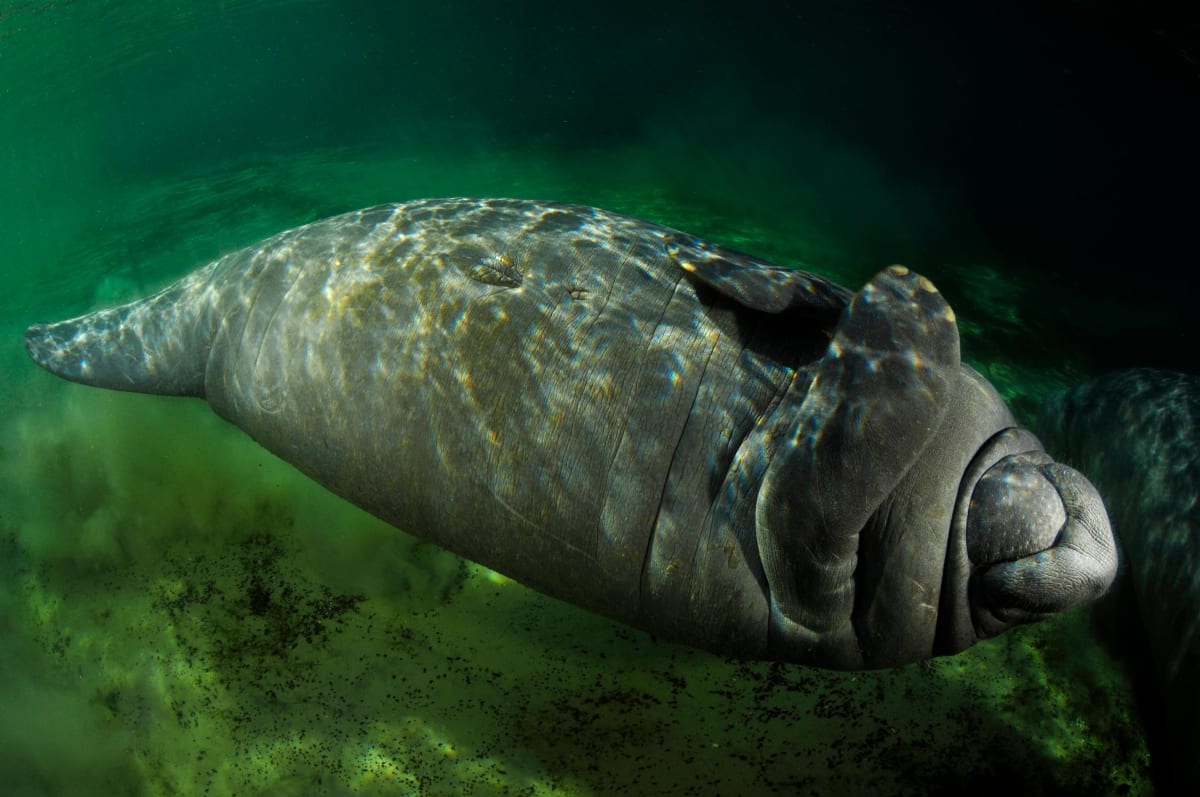November 20, 2020
Florida’s state marine mammal, the manatee, is falling prey to plastics
Affectionately known as “sea cows,” manatees are a treasured sight along Florida’s coastline. These slow-moving, gentle giants can weigh up to 1,200 pounds, subsisting solely on a vegetarian spread of seagrass and algae. But their diets too often include something that doesn’t belong – plastic.
Oceana reviewed nearly 1,800 documented cases of plastic consumption and entanglement among marine animals in U.S. waters from 2009 to early 2020 and discovered that manatees, along with turtles, were disproportionately represented. Turtles comprised 48% of all cases, while manatees comprised 39%.
At least 700 Florida manatees fell prey to plastics over that period, and nearly all of them (99%) had swallowed some type of plastic. This extra threat is one that Florida manatees, a species threatened with extinction, cannot afford. They are already vulnerable to ship strikes and fishing gear entanglements (which were not included in Oceana’s report), and humans are responsible for about half of all manatee deaths where the cause is known.
The new report from Oceana, titled “Choked, Strangled, Drowned: The Plastics Crisis Unfolding in Our Oceans,” highlights the existential threat that plastic poses. Most of these cases (88%) involved animals that were listed as either endangered or threatened with extinction under the Endangered Species Act. And in some cases, a single piece of plastic proved fatal.
Brandon Bassett, a biologist at the Florida Fish and Wildlife Conservation Commission who responds to manatee strandings, said that roughly one in 10 manatee carcasses contains some sort of marine debris. He recalled one manatee that died after ingesting a large number of plastics bags and other types of plastic.
“Imagine a ball of plastic bags in the stomach, about the size of a cantaloupe, and then a bunch of plastic bags that were wrapped and almost like a rope that was about 3 feet long,” Bassett said.
“On the other end of that was another ball of even more plastic bags that was maybe about half the size of a cantaloupe, and that was in the intestine. That whole mass ended up killing the animal. Stuff like that can lead to not only death, but significant and unnecessary suffering.”
In another case that Oceana reviewed, a plastic strap wrapped around a manatee’s body, leaving a 10-centimeter-long gash. Rescuers estimated that the manatee had been entangled for roughly two years before it was discovered and brought to a rehabilitation center, where its wound was treated.
Bassett thinks manatees might be particularly susceptible to plastics because they live in estuaries and coastal regions and primarily feed on bottom vegetation, where debris can settle, or on floating vegetation, in which debris can become entangled.

This problem isn’t limited to manatees, either. According to Oceana’s report, northern fur seals in the North Pacific Ocean and Bering Sea consumed plastic up to 50 times more often than average for eared seals, and some sea turtle groups consumed plastic up to three times more often than average. It is not uncommon for marine animals to mistake pieces of plastic for food, or to inadvertently swallow plastic while feeding or swimming.
If we want to protect marine animals and the vibrant ecosystems they support, we must keep plastics out of the ocean in the first place. Around the world, Oceana campaigns to limit the production and use of needless single-use plastics that all too often end up where they shouldn’t.
Want to help? Tell your favorite brands and companies that you want plastic-free choices, or urge your elected officials to support legislation that would limit single-use plastics. To learn more about how you can join us in protecting the world’s oceans from plastic pollution, visit plastics.oceana.org.



